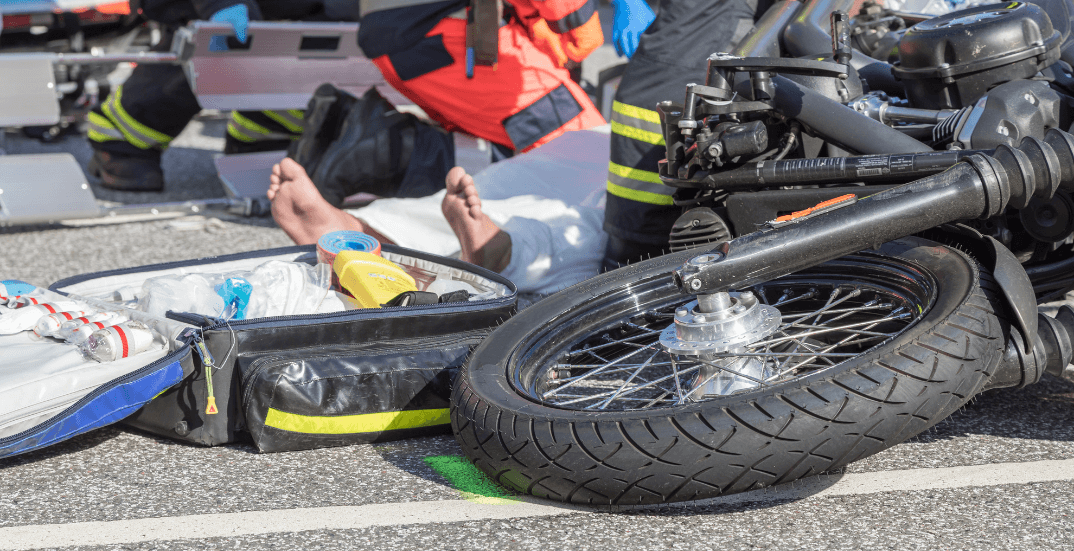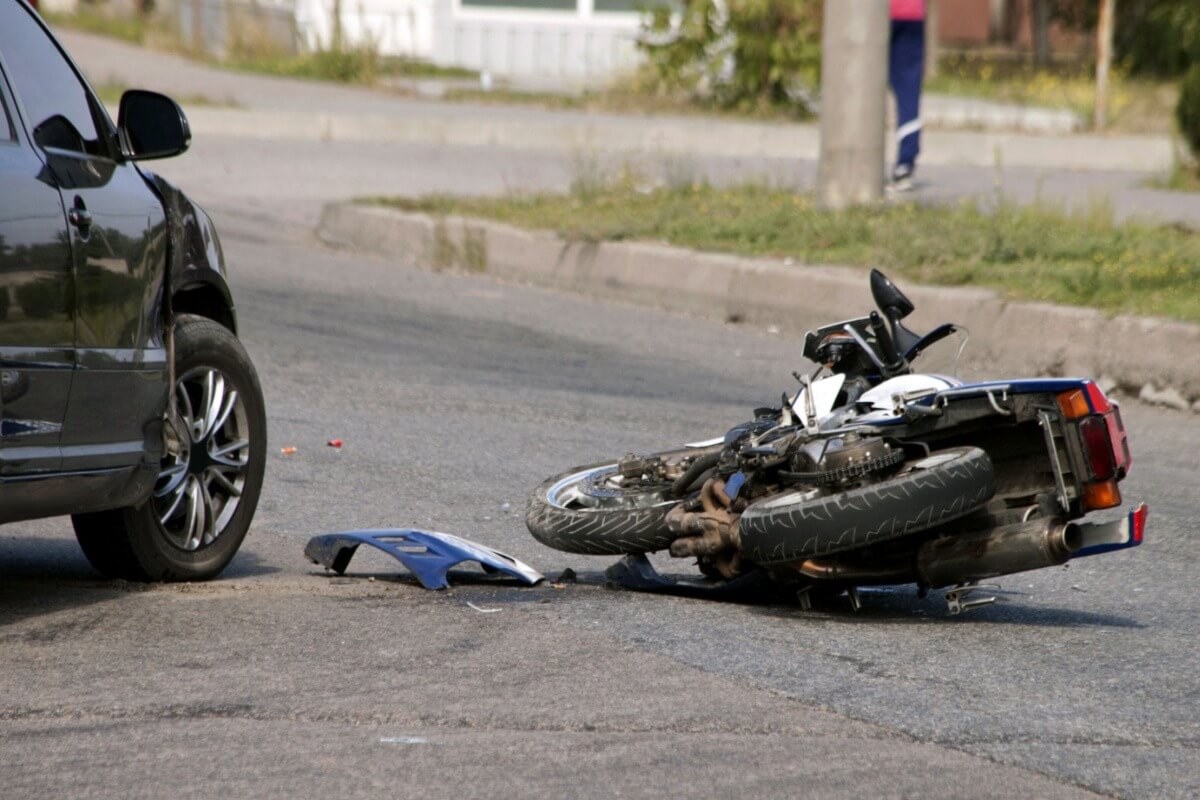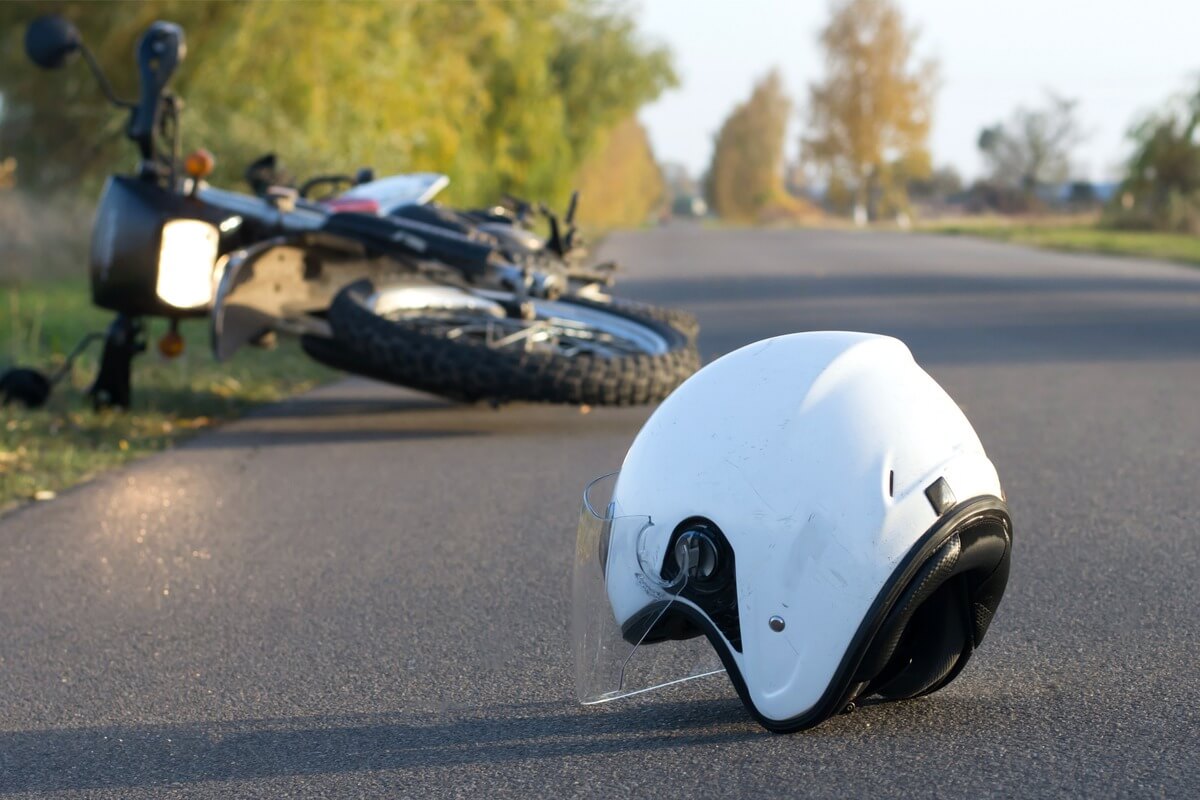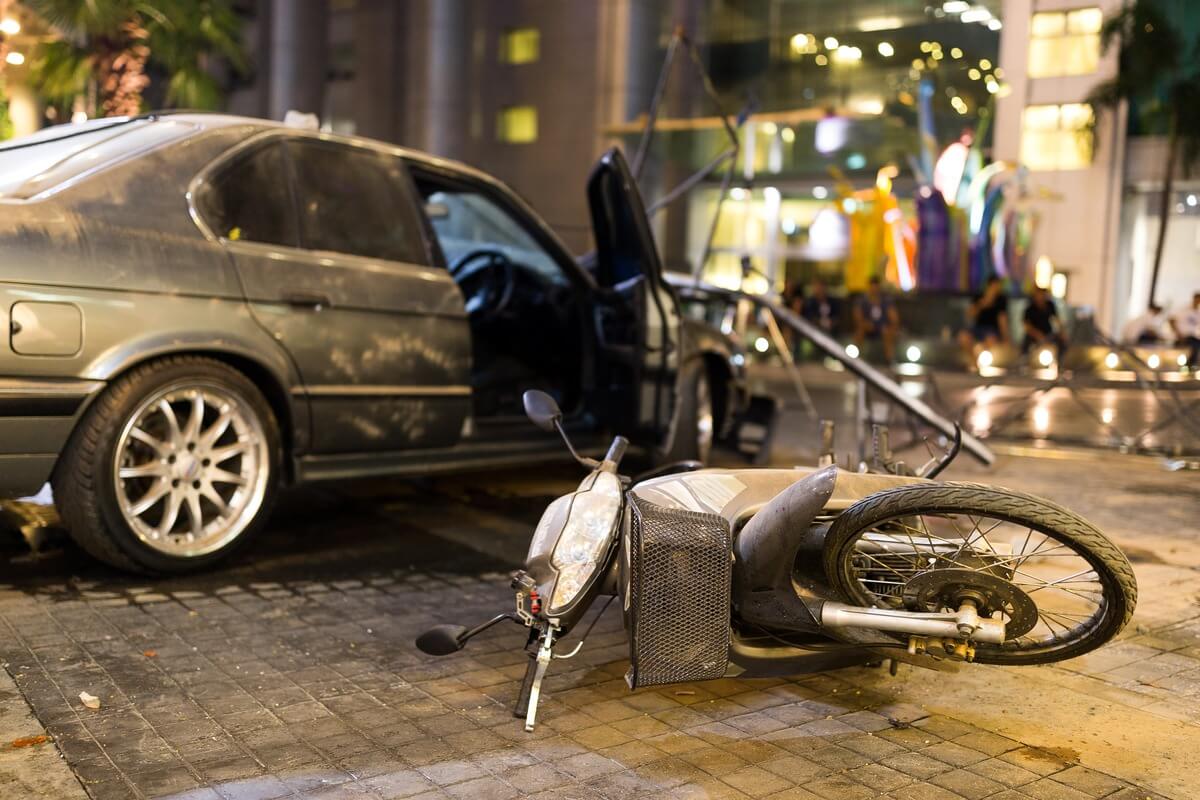
Partner at AKD Lawyers
Practice Areas: Personal Injury

Motorcycle accidents can lead to severe injuries. Whether a rider wears a helmet often plays a vital role in the outcome of an accident and an accident claim. In Louisiana, helmet laws affect more than just safety—they can determine (at least partially) the compensation a motorcyclist can recover in a personal injury claim.
Riders must understand how helmet use (or lack thereof) influences motorcycle accident claims in Louisiana and how to seek compensation after a wreck.
Understanding Louisiana Helmet Laws
Louisiana has specific laws regarding motorcyclist helmet usage. The state mandates that all motorcyclists, regardless of age, wear helmets. This requirement isn’t just about safety. It’s a legal duty that can affect liability in accident cases.
Knowing these rules can help you understand how compliance—or non-compliance—may impact a claim.
Current Helmet Requirements
The law governing helmet use in Louisiana is found under Louisiana Revised Statutes § 32:190. This statute requires every motorcyclist and passenger to wear helmets on Louisiana roads.
The helmet must meet specific safety standards to ensure adequate protection.
“Louisiana’s helmet law is intended to protect riders by reducing head injuries, a leading cause of motorcycle-related fatalities.” – Louisiana Department of Public Safety.
These laws can reduce fatalities and severe head injuries. Not complying with them may have consequences for your safety and insurance claim or lawsuit if you’re involved in an accident.
Purpose and Enforcement
Helmet laws protect motorcyclists from the severe consequences of head injuries. Louisiana law enforcement can issue citations to riders not wearing helmets.
These citations carry fines. However, depending on the circumstances, the more significant concern may be how failing to wear a helmet can impact the motorcycle accident claim.

The Role of Helmet Use in Motorcycle Accident Claims
When filing a motorcycle accident claim in Louisiana, whether or not you wore a helmet at the time of the accident may impact the claim in two main ways: liability and compensation.
Louisiana is a comparative negligence state. That means degrees of fault can be assigned to multiple parties when an accident happens. The fault assigned to each party in an accident affects the compensation they can recover.
Liability and Fault Assessment
In a motorcycle accident claim, liability is determined by first determining who caused the accident—and the injuries victims sustained. If a motorcyclist wasn’t wearing a helmet, it could be argued that their own negligence contributed to their injuries.
This argument is particularly relevant if the injuries involve head trauma. Insurance companies and opposing legal teams may say that wearing a helmet would have reduced the severity of the injury, potentially decreasing the motorcyclist’s compensation.
“Under Louisiana’s comparative negligence law (La. Civ. Code Art. 2323), a motorcyclist’s compensation may be reduced if their actions, such as not wearing a helmet, contributed to their injuries.”
The court may assign a percentage of fault to the motorcyclist based on their choice not to wear a helmet. This can occur even if they were not at fault for the accident. This is where comparative negligence comes into play.
Comparative Negligence Law in Louisiana
Under Louisiana Civil Code § 2323, the comparative negligence rule states that a motorcyclist’s compensation can be reduced if their actions caused the accident or contributed to the severity of their injuries.
For example, if a court determines that a motorcyclist is 20% responsible for their head injury because they were not wearing a helmet, their compensation may be reduced by that percentage.
This can mean a substantial reduction in compensation, particularly in cases involving severe or life-changing injuries.
Understanding how comparative negligence works in Louisiana is essential to calculating potential compensation in situations where multiple parties share fault.

Common Misconceptions about Helmet Laws and Claims
Several misconceptions exist about how helmet use affects motorcycle accident claims in Louisiana. Clearing up these misunderstandings can help motorcyclists better navigate the claims process.
Misconception: Not Wearing a Helmet Means No Claim Can Be Filed
Many believe not wearing a helmet automatically invalidates a motorcycle accident claim. This isn’t so. While not wearing a helmet may reduce your compensation, it doesn’t eliminate your right to file a claim if someone else contributed to or caused the accident.
Important Fact: Helmet Use is Only One Factor in Claim Evaluation
It’s important to note that while helmet use influences claims, it’s only one part of the equation. Insurance adjusters and courts examine various factors, such as who caused the accident and the injuries sustained.
Although a helmet might have prevented or reduced injuries, its use alone doesn’t dictate the ultimate outcome of a claim.
“According to the CDC, helmets reduce the risk of death by 37% and head injury by 69% for motorcyclists.”
These statistics show that helmets are highly effective. That doesn’t mean they dominate all other aspects of an accident claim. Each case is unique and evaluated on multiple factors.
Case Examples: How Helmet Use Can Affect Claims
To illustrate how helmet use affects motorcycle accident claims, here are a few hypothetical scenarios that show how courts and insurers might assess cases differently based on helmet usage.
| Scenario | Likely Outcome in Claims | Potential Compensation Adjustment |
| Rider wore a helmet | Injury claims likely to be fully assessed | Full compensation possible |
| Rider did not wear a helmet | Injury claims may be reduced due to comparative fault | Reduced compensation possible |
In these scenarios, helmet use influences the outcome, but each case’s specific details still matter. Courts and insurers evaluate multiple aspects of the accident, including actions taken by both parties.
Frequently Asked Questions
Do I have a valid motorcycle accident claim if I wasn’t wearing a helmet?
Yes, you may still have a valid claim. However, your compensation may be adjusted based on Louisiana’s comparative negligence laws.
Can my compensation be reduced if I don’t wear a helmet?
Yes, not wearing a helmet could lead to reduced compensation, as failure to wear a helmet may have contributed to the severity of your injuries.
Does Louisiana law require all motorcycle riders to wear helmets?
Yes, Louisiana mandates that all motorcyclists, regardless of age, wear helmets.
Will wearing a helmet guarantee total compensation in a motorcycle accident claim?
While wearing a helmet strengthens your claim, compensation also depends on other factors, such as accident fault and the specifics of your injuries.
Get Help With Your Louisiana Motorcycle Accident Case
Understanding Louisiana’s helmet laws and their impact on motorcycle accident claims is essential for riders. Wearing a helmet protects you from severe injuries and strengthens your legal claim if you’re involved in an accident. However, you may still have a viable claim even if you were not wearing a helmet.
If you’ve been involved in a motorcycle accident in Louisiana, consulting with experienced attorneys, like those at Alvendia, Kelly & Demarest Law Firm, can help you navigate the complexities of helmet laws and protect your rights.
Whether you wear a helmet or not, it’s crucial to have knowledgeable legal support to ensure your case is handled fairly. Understanding how helmet laws affect motorcycle accident claims allows you to make informed decisions about your rights and next steps.
Categories

In 2003, after being dissatisfied with the quality of legal care for victims of car accidents, Roderick ‘Rico’ Alvendia sought to establish a new firm focused on providing high-quality legal services to aid injured victims and their families. J. Bart Kelly, sharing Rico’s passion for upholding justice, joined the firm later that year, and established a partnership.





